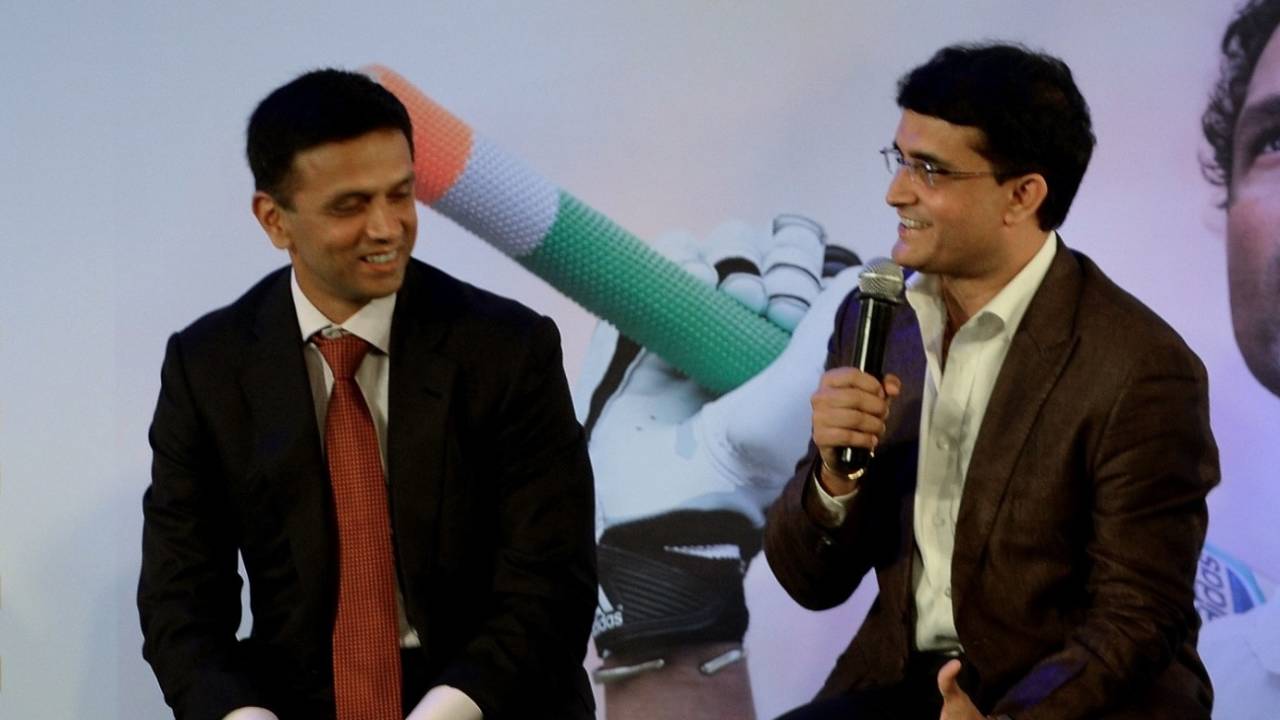In its most high-profile move against age fraud, the BCCI has proposed an amnesty scheme accompanied by a system of punishments for offenders. Under this, registered players will get an opportunity to voluntarily declare any age fraud and avoid suspension if they provide their actual date of birth, but face bans if they are found to have breached this.
A press statement from the board on Monday said that if the BCCI discovered such a fraud after the deadline of declaration - September 15, 2020 - the players could be banned for two years and barred from any age-group tournaments even after the ban ended. That rule would be both applicable both at the India and the state levels.
Age fraud, as the BCCI said, has been a "menace: in Indian cricket for long specifically at age-group level: Under-16, Under 19 and Under 23 (both men women categories)." ESPNcricinfo understands that in the last two years itself, the BCCI has suspended 236 players - 210 men and 26 women. A total of 159 players were detected to have committed age fraud in 2019-20 season.
Rahul Dravid, the former India captain who is now director of cricket at the National Cricket Academy, has long considered age fraud as "seriously detrimental" to the culture of Indian cricket. Dravid reiterated that stance in the media release on Monday.
"Age fraud is a serious matter and is detrimental to the health of the sport," Dravid said. "Many youngsters who are supposed to be playing in a particular age group fail to make it owing to age fraud. With the BCCI taking stern actions to curb this, it is only advisable for the players to come forward and abide by the directives issued by the board."
Sourav Ganguly, the BCCI president, has underlined his commitment to "providing a level-playing field across all age groups". "The BCCI has been taking steps to counter age fraud and are now introducing even stricter measures from the upcoming domestic season. Those who do not voluntarily disclose their misdemeanour will be punished heavily and will be banned for two years," he said.
How does the age verification process work?
As part of the age verification process, at Under-19 level, the player has to submit his birth certificate along with as many documents concerning his school/college educational reports. For the Under-16 category, the BCCI conducts a one-time TW3 (Tanner-Whitehouse3)
bone maturation test at the Under-16 level only. The TW3 test, adopted by the BCCI in 2012, allows accurate estimation of a player's age by the analysis of x-rays of the lower end of the player's forearm.
Going forward, from the 2020-21 season, the BCCI said only players aged between 14 and 16 will be permitted to register for the Under-16 level. For the Under-19 category, if a player's birth certificate has a date two years after his actual date of birth, there will a cap imposed on the number of years the player can feature at that level.
Nonetheless, players have managed to bypass these rules. Last year, the BCCI
banned Rasikh Salam, the Jammu & Kashmir pace bowler who represented Mumbai Indians in one IPL game, for two years for submitting a faulty birth certificate when registering with the board. At the time, he was part of the India Under-19 side to play a triangular one-day series in Bangladesh.
The BCCI introduced a 24-hour helpline last year (see footnote) to report age and domicile fraud. Upon receiving complaints, the BCCI has launched investigations that reach out to the players' schools, hospitals of birth, local municipalities and panchayats etc. to verify the documentation provided.
Domicile fraud
The voluntary disclosure scheme will not apply to domicile fraud, which also carries a two-year ban. The number of such cases might have gone up with newer states qualifying to play Ranji Trophy in accordance with Lodha reforms. So, a player qualified to play for a more established state might find it easier to get selected for newer states.
The BCCI also said players under the age of 14 would not be allowed to play in Under-16 tournaments. And those whose birth was registered more than two years after the date of birth would be allowed to play only a certain number of years in the Under-19 events. It didn't spell out the restriction.
The numbers to report age or domicile fraud are 9820556566 and 9136694499.
Nagraj Gollapudi is news editor at ESPNcricinfo
